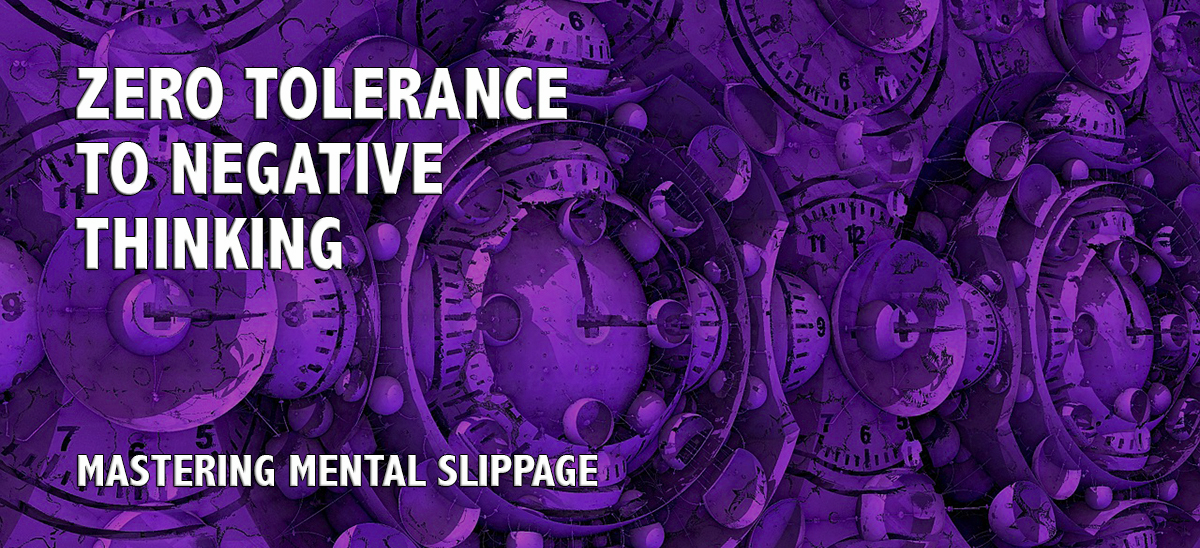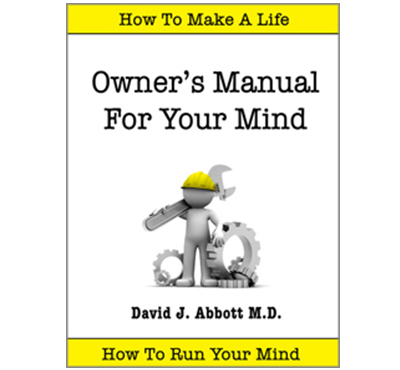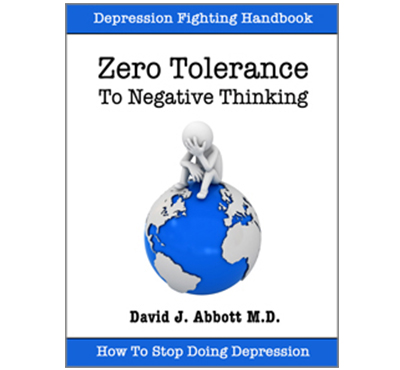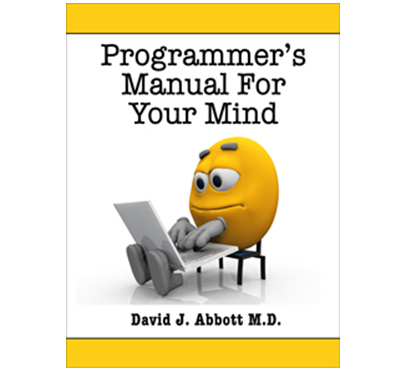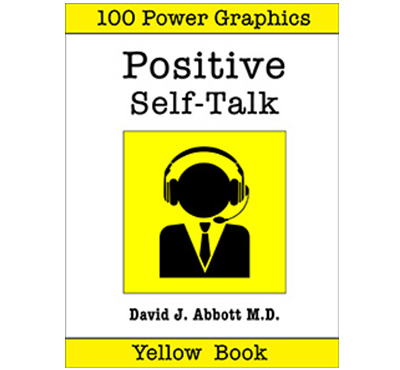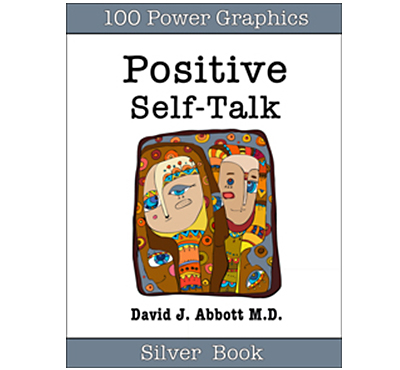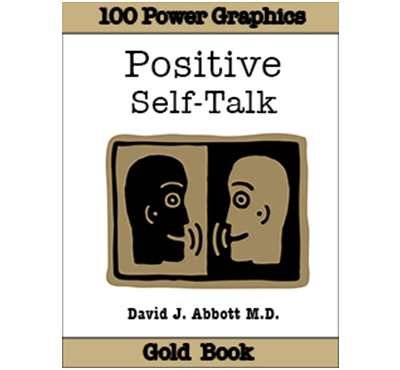I was in working in Riyadh, Saudi Arabia during the Gulf War in 1991. This war pointed out how important command and control are when engaged in military conflict.
The military selected command and control centers as their initial targets. They knew that if they destroyed them, they would effectively decapitate the enemy. The forces in the field would no longer be controlled by a coordinated central command. The defensive structure of the enemy would collapse like a house of cards. When there is no one in command, there is loss of control.
The same thing happens in depression.
Command and control of thoughts becomes a major issue.
Depression takes command, and you no longer control the thoughts that rumble through your mind.
People who are healthy don’t have a problem with command and control.
They are in command, and they control the content of their thoughts.
DEPRESSION IS A COMMAND AND CONTROL ISSUE
One way to tell if a person is clinically depressed is to look at command and control.
If they are in command of their mind, and if they control the content of their thoughts, then they are not seriously depressed.
When they lose command and control, they slide down the slippery slope of depression.
Destructive automatic thoughts are the hallmark of the loss of command and control found in depression.
All of us experience automatic thoughts that pop up into our mind, but our automatic thoughts don’t control us.
They may annoy us, but if we are healthy, they are only an intermittent irritation that we can live with. We wish they would go away, and the sooner the better, but at least they don’t control us.
People with clinical depression have automatic thoughts that control their life, and those thoughts are more than a minor irritation; they take over. They become a major stressor that wears them down and out.
When automatic thoughts take over, when command and control passes out of your hands, it’s time for intervention by a trained professional.
Until you reestablish command and control, you will not get better.
If you are seriously depressed, you may need medication to rebalance the chemistry in your brain to reestablish command and control.
Once the chemistry of your brain moves in a positive direction, you are able to regain control of your thoughts.
After you reestablish control, you have the possibility of eliminating your twisted thinking.
MENTAL SLIPPAGE - WHAT'S HAPPENING
When I was sailing up the Australian Great Barrier Reef, I stripped the gears on the autopilot that steers my yacht.
In my trip around the world, my autopilot steered the yacht for more than thirty thousand miles. For all of those miles the autopilot performed flawlessly, except when I stripped the gears.
Stripped gears no longer function properly. They slip and make a horrible grinding noise as my sailboat heads off course. When the gears are stripped, my autopilot is worthless.
Stripped gears are like the mental slippage found in depression.
When your mental gears become stripped, your mental autopilot ceases to function properly. You wander off course, and if you aren’t careful, you end up on the rocks.
The mental slippage takes two forms.
The first part of mental slippage deals with the control of your thoughts.
You lose control of your thoughts; instead of controlling your thoughts, they control you.
Your thoughts become autonomous as automatic thoughts take over.
The second part of mental slippage deals with the content of your thoughts.
Mental slippage allows your mind to fill up with twisted, distorted thoughts called cognitive distortions.
Mental slippage is basically a control and content issue.
Mental slippage means that your mental autopilot is no longer functioning properly.
Your life wanders off course, and you head deeper and deeper into the Land of Depression.
Mental slippage is a real condition, and until you fix it, you won’t get better.
The first type of mental slippage focuses on controlling your thoughts.
When you lose control of your thoughts, you lose control of your life.
Imagine that you are an air traffic controller at Los Angeles International Airport. You track aircraft on radar and tell them when and where it’s safe to fly. You assign altitudes and courses to planes to prevent mid-air collisions and to safely bring them in to land.
Similarly, you assign courses and altitudes to planes as they take off.
If everyone does exactly as instructed, planes don’t collide with each other, and the airport runs efficiently without mishap.
Imagine what would happen if suddenly incoming aircraft chose their own altitude and landed whenever they wanted.
Imagine that each aircraft took off whenever it pleased.
Total chaos would ensue.
Approaching aircraft would run into airplanes sitting on the runways.
Mid-air collisions would happen all over the sky.
Without command and control, a modern international airport would become a disaster area.
Command and control are everything.
Someone has to be in charge and make sure that aircraft do exactly as instructed. That’s why we have air traffic controllers.
Imagine what would happen if you lost command and control in your mind.
Instead of you running your mind, your mind ran you.
Your incoming thoughts and outgoing thoughts zoomed around totally out of control.
That’s what happens when you have mental slippage.
You no longer control the thoughts that pass through your mind.
You lose control of your mental traffic.
Your thought controller no longer functions properly, and thoughts fly in every direction.
Fortunately, when your thought controller doesn’t function properly, you can use medication to stop the mental slippage and reestablish command and control.
SHOULD YOU USE MEDICATION TO TREAT YOUR DEPRESSION?
How do you know whether you should be taking medication to treat depression?
The answer to that question is different for different people.
Each medication is a two-edged sword because of potential side effects.
Some medications are associated with a higher than normal incidence of suicide.
Sometimes there is a serious rebound of the depression when you stop using medication.
Taking an antidepressant to reestablish command and control isn’t like taking an aspirin for headache.
Antidepressants have real complications associated with their use.
People taking antidepressants should be treated by a professional who evaluates their response to therapy at regular intervals, and who checks for adverse reactions.
If the desired response isn’t happening, or if there are unwanted side effects, a professional needs to modify the treatment so that unnecessary and potentially dangerous complications don’t occur.
If you have a significant degree of mental slippage, you need some type of therapy that will allow you to reestablish command and control.
If you have a mild mood disorder, cognitive therapy alone may do the job with the least risk of complications.
But when the mood disorder is severe with a high degree of mental slippage, it will be much more difficult to reestablish command and control with only cognitive therapy, and it may be necessary to use medication.
After medication has a positive effect, you may benefit from cognitive therapy to complete the rest of the job.
All types of mood disorders (mild to severe) may benefit from medication, but in severe mood disturbances, the loss of control is so advanced that medication is no longer optional. It’s mandatory.
You must use medication to regain enough control over your thoughts so that other forms of therapy can have a chance to work.
In order to win the battle against depression it’s absolutely essential that you reestablish control over your thoughts.
If you are depressed, you may believe it’s impossible to control your thoughts. Outside forces have controlled your mind for such a long time, it seems like a radical idea that you can actually control what you think about.
You have been living in mental default mode for so long with other people setting and controlling your mental agenda, you now believe that reestablishing control is impossible.
If that’s the way you feel, you are wrong.
Cognitive therapy in combination with medication pushes the odds of recovery in your favor.
If you are motivated and assume a positive attitude toward treatment, you will reestablish command and control and win the war against depression.
The second aspect of mental slippage has to do with the content of your thoughts.
Not only are your thoughts out of control, the content of those thoughts is out of whack as well.
The content becomes so disturbing that it drives some people to the point of suicide.
People hear the same critical condemning voice repeating the same destructive message over and over again. It initiates a downward spiral that can end in self-destruction if uncorrected.
As long as you control the content of your thoughts, and that content is positive, it’s impossible for depression to take over.
The treatment of depression has two phases.
First you must regain control of your thoughts.
Second, you must change what those thoughts say; you must change the content.
HOW TO CHANGE THE CONTENT OF YOUR THOUGHTS
Your thoughts always turn in the direction of what you put into your mind.
You change the content of your thoughts by changing what you say when you talk to your mind.
Life doesn’t consist so much of facts and events. It consists mainly of the storm of thoughts that blows endlessly through your mind.
What you put into your mind becomes the wind that blows there.
When negative and depressing thoughts gain entrance, a cyclone of negativity and depression sweeps through your life.
If you fill your mind with positive thoughts, you experience fair winds and following seas as you sail on the ocean of your dreams.
Depressed people need to be extremely selective about what they allow into their mind.
Content is king.
If they put good things into their mind, their life improves.
If they put in negative and depressing thoughts, they slip further down into the pit of depression.
The wheel of change always turns in the direction of what you put into your mind.
You must stand guard on the door of your mind and prevent the toxic waste of the twenty-first century from getting inside, and you must start putting tons of positive things into your mind.
You can make the content of your thoughts anything that you want it to be.
If you want to be more positive, then put more positive things into your mind.
Too often the treatment of depression focuses only on eliminating cognitive distortions without taking people to the next level by showing them how to put positive things into their mind.
Eliminating the negative is not enough.
You must learn how to create a positive brain and install a positive operating system.
Remember, if you want to have a mind free from depression, nobody can stop you.
If you want to learn more about how to win the battle against depression, you can read Zero Tolerance to Negative Thinking by Dr. Dave.
